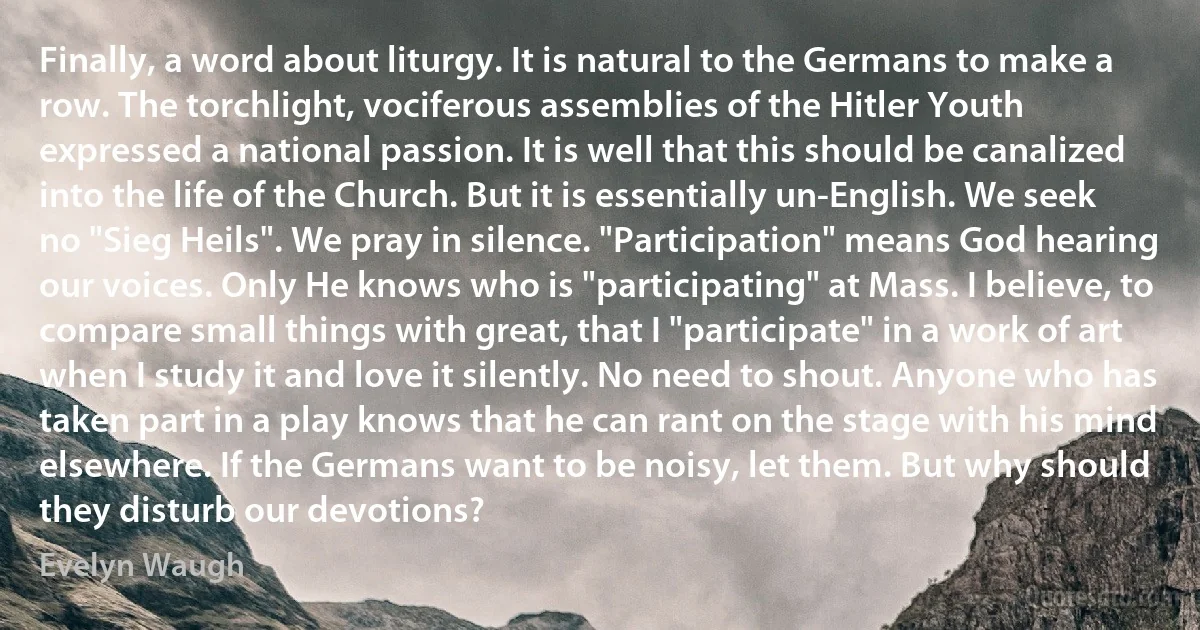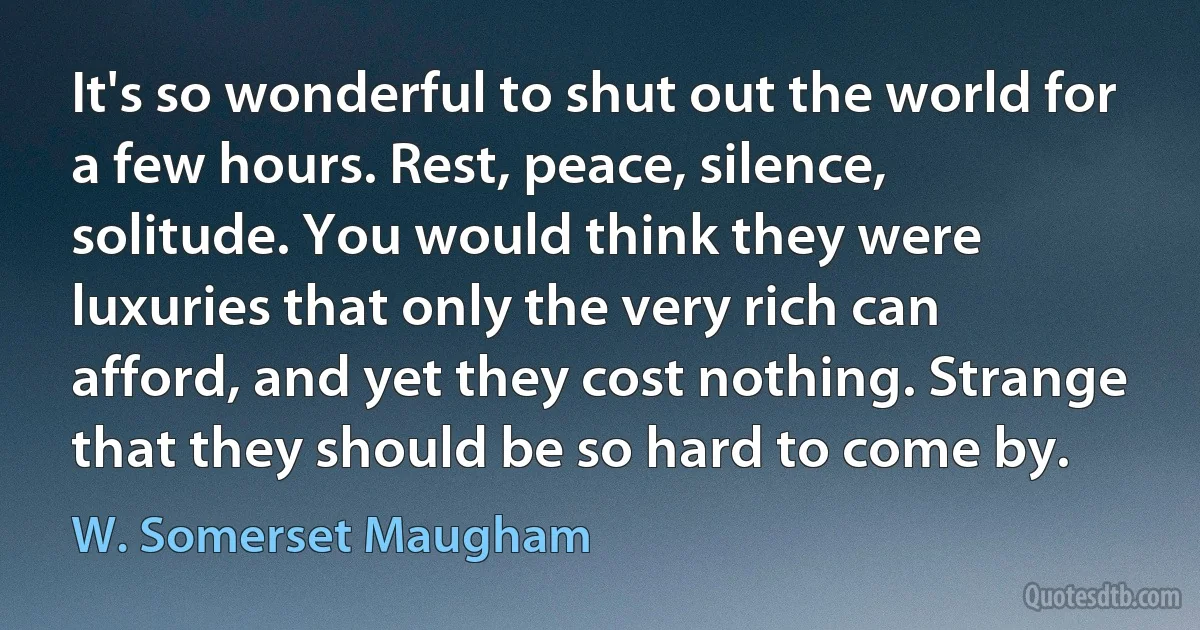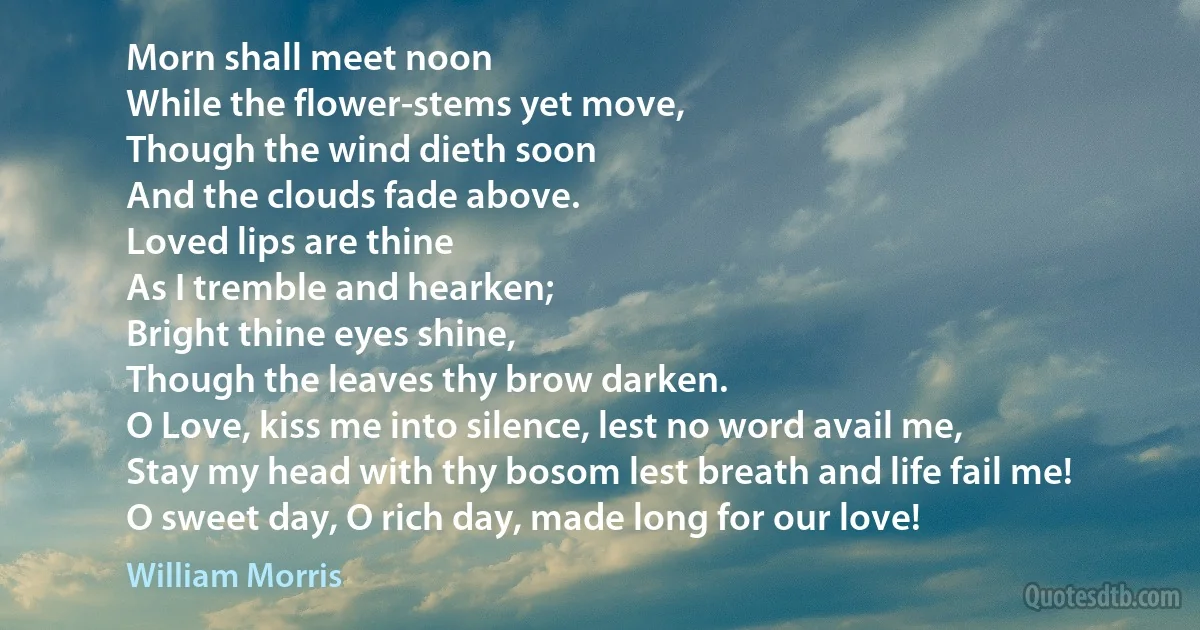Silence Quotes - page 71
It was not until I joined the faculty of Spelman College, a college for black women in Atlanta, Georgia, that I began to read the African-American historians who never appeared on my reading lists in graduate school (W. E. B. Du Bois, Rayford Logan, Lawrence Reddick, Horace Mann Bond, John Hope Franklin). Nowhere in my history education had I learned about the massacres of black people that took place again and again, amid the silence of a national government pledged, by the Constitution, to protect equal rights for all.

Howard Zinn
Not one glance of compassion, not one commiserating reflection, that I can find throughout his book, has he bestowed on those who lingered out the most wretched of lives, a life without hope in the most miserable of prisons. It is painful to behold a man employing his talents to corrupt himself. Nature has been kinder to Mr. Burke than he is to her. He is not affected by the reality of distress touching his heart, but by the showy resemblance of it striking his imagination. He pities the plumage, but forgets the dying bird. Accustomed to kiss the aristocratical hand that hath purloined him from himself, he degenerates into a composition of art, and the genuine soul of nature forsakes him. His hero or his heroine must be a tragedy-victim expiring in show, and not the real prisoner of misery, sliding into death in the silence of a dungeon.

Thomas Paine
Sverdlov Hall was already nearly full...The provincial elite were all there. And it was all the usual things: people kissing each other and shouting greetings across the rows of seats, chattering about the snow and the harvest prospects and generally feeling themselves to be masters of their fate. In all the cacophony I didn't hear the name of Andropov mentioned once, not anything said about his death. At twenty minutes to eleven the hall hushed. The waiting began. With each minute the tension rose and the atmosphere felt charged with electricity...The tension reached a climax. All eyes turned towards the door...Who would come through it first? At precisely eleven, Chernenko's head appeared in the doorway. He was followed by Tikhonov, Gromyko, Ustinov, Gorbachev and the rest. The delegates' reaction was silence.

Konstantin Chernenko
We cannot allow Donald Trump to redefine the Republican Party. That is what he is doing, as long as we give the impression by our silence that his words are our words and his actions are our actions. We cannot allow that impression to go unchallenged.
As has been true since our beginning, we Republicans are the party of Lincoln, the party of the Union. We believe in our founding principle. We are proud of our illustrious history. We believe that we are an essential part of present-day American politics. Our country needs a responsibly conservative party. But our party has been corrupted by this hateful man, and it is now in peril.
In honor of our past and in belief in our future, for the sake of our party and our nation, we Republicans must disassociate ourselves from Trump by expressing our opposition to his divisive tactics and by clearly and strongly insisting that he does not represent what it means to be a Republican.

John Danforth
How 'bout me not blaming you for everything?
How 'bout me enjoying the moment for once?
How 'bout how good it feels to finally forgive you?
How 'bout grieving it all one at a time?Thank you India.
Thank you terror.
Thank you disillusionment.
Thank you frailty.
Thank you consequence.
Thank you, thank you silence.

Alanis Morissette
One of the myths propagated by the enemies of Israel is that there is an all-powerful Zionist conspiracy. That is a false accusation. Nevertheless, that AIPAC has been so successful in suppressing criticism has lent some credence to such false beliefs. Demolishing the wall of silence that has protected AIPAC would help lay them to rest. A debate within the Jewish community, instead of fomenting anti-Semitism, would only help diminish it.
Anticipating attacks, I should like to emphasize that I do not subscribe to the myths propagated by enemies of Israel and I am not blaming Jews for anti-Semitism. Anti-Semitism predates the birth of Israel. Neither Israel's policies nor the critics of those policies should be held responsible for anti-Semitism. At the same time, I do believe that attitudes toward Israel are influenced by Israel's policies, and attitudes toward the Jewish community are influenced by the pro-Israel lobby's success in suppressing divergent views.

George Soros
If it weren't for your maturity, none of this would have happened.
If you weren't so wise beyond your years, I would've been able to control myself.
If it weren't for my attention, you wouldn't have been successful and if
If it weren't for me, you would never have amounted to very much.Ooh, this could be messy
But you don't seem to mind, and
Ooh, don't go telling everybody
And overlook this supposed crime.We'll fast forward to a few years later
And no one knows except the both of us.
And I have honored your request for silence
And you've washed your hands clean of this.

Alanis Morissette
At Chicago, Hayek put aside his more technical economic work for the development of a social and political theory that became in time the most ambitious and complete synthesis to emerge from the ranks of the post-war Right. Among its themes - the overriding significance of the rule of law, the need for social inequality, the function of unreflective tradition, the value of a leisured class - were many cultivated by Strauss across the campus. Neither thinker, however, ever referred to the other. Did temperamental antagonism, or intellectual indifference, dictate the silence? Whatever the case, latent tensions of outlook between them were to find expression in due course. Schmitt, on the other hand, was never far from Hayek's mind – standing for the prime example of a skilled jurist whose sophistry helped to destroy the rule of law in Germany, yet a political theorist whose stark definitions of the nature of sovereignty and the logic of party, at any rate, had to be accepted.

Friedrich Hayek
It's not that during Kennedy's lifetime there was total silence about his uglier habits; it's that they weren't seen as disqualifying. But with these facts on the public record for decades, and the evolution of our culture over those years, more critical portraits of Kennedy are thankfully emerging, if in fits and starts.

Ted Kennedy
At the international level we have become virtually paranoid. The world is filled with dangerous people. Every troublemaker across the globe is a communist. Our obsession is in part the product of a fear generated by Joseph McCarthy. Indeed a black silence of fear possesses the nation and is causing us to jettison some of our libertarian traditions.

William O. Douglas
For a disciple of Jesus, in each case the decision hinges upon the answer to the question, Is it Christian? Is it a thing that Jesus could do without sin? Is it in harmony with his teaching and desires? Can it be followed without violating his way of life? Is it such that he can use it, sanction it and bless it? If the devout monk had decided the question solely upon these grounds, he should not have used torture to conquer the heretic, the judge should not have used the stake to silence witches, the politician should not adopt the evil practices of his opponent, and if the Christian citizen uses this same test, he should not, in my opinion, use the sword in resisting the military despot.

Kirby Page
Every silence is composed of nothing but unspoken words. Perhaps that is why I became a musician. Someone had to express this silence, make it render up all the sadness it contained, make it sing as it were. Someone had to use not words, which are always too precise not to be cruel, but simply music.

Marguerite Yourcenar
When students' language, culture and experience are ignored or excluded in classroom interactions, students are immediately starting from a disadvantage. Everything they have learned about life and the world up to this point is being dismissed as irrelevant to school learning; there are few points of connection to curriculum materials or instruction and so students are expected to learn in an experiential vacuum. Students' silence and nonparticipation under these conditions have frequently been interpreted as lack of academic ability or effort, and teachers' interactions with students have reflected a pattern of low expectations which become self-fulfilling.

Jim Cummins (professor)
Many of his questions seemed highly out of place to his visitor, especially those which tried to connect the latter with strange cults or societies; and Wilcox could not understand the repeated promises of silence which he was offered in exchange for an admission of membership in some widespread mystical or paganly religious body. When Professor Angell became convinced that the sculptor was indeed ignorant of any cult or system of cryptic lore, he besieged his visitor with demands for future reports of dreams.

H. P. Lovecraft
Death is the end of life; ah, why
Should life all labour be?
Let us alone. Time driveth onward fast,
And in a little while our lips are dumb.
Let us alone. What is it that will last?
All things are taken from us, and become
Portions and parcels of the dreadful past.
Let us alone. What pleasure can we have
To war with evil? Is there any peace
In ever climbing up the climbing wave?
All things have rest, and ripen toward the grave
In silence; ripen, fall and cease:
Give us long rest or death, dark death, or dreamful ease.

Alfred, Lord Tennyson
Attention involves seeing and hearing. We hear not only with our ears but also we are sensitive to the tones, the voice, to the implication of words, to hear without interference, to capture instantly the depth of a sound. Sound plays an extraordinary part in our lives: the sound of thunder, a flute playing in the distance, the unheard sound of the universe; the sound of silence, the sound of one's own heart beating; the sound of a bird and the noise of a man walking on the pavement; the waterfall. The universe is filled with sound. This sound has its own silence; all living things are involved in this sound of silence. To be attentive is to hear this silence and move with it.

Jiddu Krishnamurti
Let silence be your general rule; or say only what is necessary and in few words. We shall, however, when occasion demands, enter into discourse sparingly, avoiding such common topics as gladiators, horse-races, athletes; and the perpetual talk about food and drink. Above all avoid speaking of persons, either in the way of praise or blame, or comparison. If you can, win over the conversation of your company to what it should be by your own. But if you should find yourself cut off without escape among strangers and aliens, be silent. (164).

Epictetus
Yes, I know well that others before me have felt what I feel and express; that many others feel it today, although they keep silence about it. ...And I do not keep silence about it because it is for many the thing which must not be spoken, the abomination of abominations - infandum - and I believe that it is necessary now and again to speak the thing which must not be spoken. ...Even if it should lead only to irritating the devotees of progress, those who believe that truth is consolation, it would lead to not a little. To irritating them and making them say: "Poor fellow! if he would only use his intelligence to better purpose!... Someone perhaps will add that I do not know what I say, to which I shall reply that perhaps he may be right - and being right is such a little thing! - but that I feel what I say and I know what I feel and that suffices me. And that it is better to be lacking in reason than to have too much of it.

Miguel de Unamuno
We came back to the chairs now and then and sang hesitant, clever, nervous, gentle dithyrambs about how we were beginning to feel towards one another. Actually we did not have the feelings we said we had until we spoke them - at least I didn't; to phrase them was to invent them and own them. We whipped our strangeness and newness into a froth that resembled love, and we dared not play too long with it, talk too much of it, or it would flatten and fizzle away. So we moved back and forth from chairs to water, from talk to silence, and considering my unshakable edginess with Brenda, and the high walls of ego that rose, buttresses and all, between her and her knowledge of herself, we managed pretty well.

Philip Roth
The 'Other Half' is the word. The 'Other Half' is an organism. Word is an organism. The presence of the 'Other Half' is a separate organism attached to your nervous system on an air line of words can now be demonstrated experimentally. One of the most common 'hallucinations' of subject during sense withdrawal is the feeling of another body sprawled through the subject's body at an angle...yes quite an angle it is the 'Other Half' worked quite some years on a symbiotic basis. From symbiosis to parasitism is a short step. The word is now a virus. The flu virus may have once been a healthy lung cell. It is now a parasitic organism that invades and damages the central nervous system. Modern man has lost the option of silence. Try halting sub-vocal speech. Try to achieve even ten seconds of inner silence. You will encounter a resisting organism that forces you to talk. That organism is the word.

William S. Burroughs



